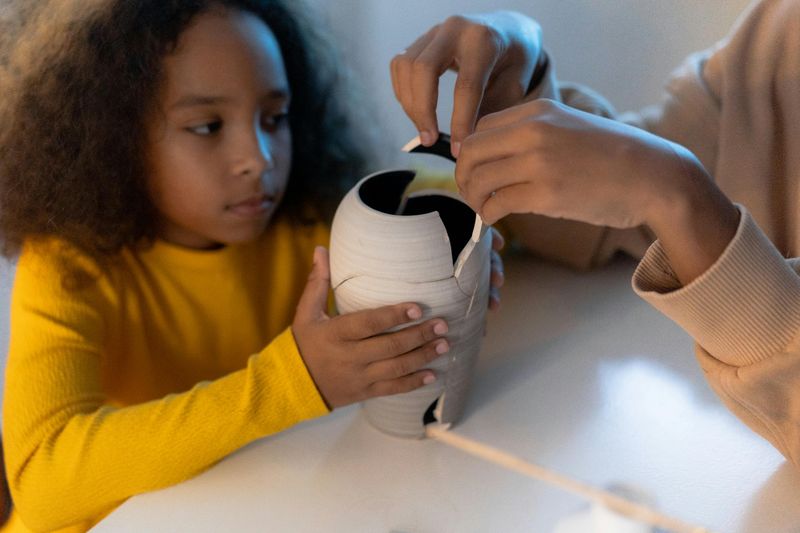12 Boomer Habits Millennials Secretly Admire

While millennials often joke about boomer quirks, there’s a secret admiration bubbling beneath the surface. Baby Boomers grew up in a different time, developing habits that younger generations sometimes roll their eyes at but secretly wish they had. From financial wisdom to social skills, these practices have stood the test of time for good reason. Let’s explore the boomer habits millennials might not admit they admire, but definitely do.
1. Calling Instead of Texting

Phone calls have become almost anxiety-inducing for many millennials, yet there’s something refreshingly direct about the boomer tendency to just pick up the phone. No waiting for replies or overthinking text tone.
Many millennials privately wish they could bypass the digital small talk and resolve matters in a quick five-minute conversation. The immediate feedback and personal connection of hearing someone’s voice creates clearer communication.
Plus, there’s no record of awkward phrasing to obsess over later. Boomers mastered this efficiency long before “zoom fatigue” became part of our vocabulary.
2. Saving Physical Photographs

Remember those bulky photo albums with plastic sheet protectors? Boomers treasure these tangible memories that don’t disappear with a phone upgrade or cloud storage failure.
The ritual of developing film and carefully arranging photos in albums created a meaningful archive of life’s moments. Many millennials find themselves scrolling through thousands of digital photos without ever printing a single one.
There’s something magical about flipping through a physical album that digital galleries can’t replicate. The worn edges and handwritten dates tell stories that perfectly filtered Instagram posts never will.
3. Writing Things Down by Hand

Studies consistently show that writing by hand improves memory and comprehension. Boomers naturally incorporated this practice into daily life, from grocery lists to appointment reminders.
The satisfaction of crossing items off a handwritten to-do list delivers a dopamine hit that digital checkboxes can’t match. Many millennials find themselves returning to paper planners after years of digital-only organization.
Beyond practicality, there’s something personal about handwriting that typing lacks. Boomers understood this intuitively, preserving thoughts in a format that feels more permanent and meaningful than digital notes that vanish into the cloud.
4. Fixing Instead of Replacing

The repair-first mentality of the boomer generation stems from necessity and practicality. Growing up in post-war economies taught them to extend the life of possessions through maintenance and creative fixes.
Today’s millennials, raised in disposable consumer culture, secretly admire this sustainability before it was trendy. The satisfaction of restoring something to working order delivers both financial and environmental benefits.
Many younger people are now embracing repair cafés and DIY tutorials, rediscovering skills their grandparents took for granted. This return to fixing things represents both environmental consciousness and resistance to planned obsolescence.
5. Building In-Person Social Networks

Long before LinkedIn and Facebook, boomers mastered the art of real-world connection. They joined community organizations, attended neighborhood events, and maintained friendships through face-to-face interaction.
The depth of these connections often surpasses the breadth of digital networks millennials have built. There’s an authenticity to relationships formed through shared experiences rather than shared posts.
Many younger adults find themselves craving these meaningful community ties, especially as digital burnout increases. The boomer approach to friendship—showing up consistently over decades—creates support systems that virtual connections struggle to replicate.
6. Commitment to Financial Literacy

Boomers approach money with practical wisdom that transcends trends. They balance checkbooks, understand compound interest, and generally avoid consumer debt for depreciating assets.
Many millennials, despite having financial apps at their fingertips, lack fundamental money management skills. The boomer generation’s emphasis on emergency funds and living below means feels increasingly relevant in uncertain economic times.
Financial independence remains the ultimate goal across generations. Millennials secretly admire how many boomers achieved this through consistent habits rather than get-rich-quick schemes that dominate today’s financial discourse.
7. Showing Up Unannounced

The casual drop-by visit represents a social confidence millennials both fear and envy. Boomers grew up in neighborhoods where knocking on a friend’s door without texting first was completely normal.
This spontaneity created authentic moments of connection that scheduled hangouts sometimes lack. While millennials might panic at the thought of unexpected visitors, many secretly wish for communities where such casual interaction was the norm.
The freedom from constant digital coordination has an appealing simplicity. Boomers’ comfort with unplanned social interaction reflects a different relationship with time and availability that many younger people find themselves nostalgic for.
8. Dressing Up for Everyday Occasions

There was a time when flying meant putting on your finest clothes — a habit boomers extended to everyday outings like doctor visits and grocery runs.
While millennials embrace comfort-first fashion, many secretly appreciate the dignity and self-respect reflected in putting effort into one’s appearance. The ritual of dressing well signals both respect for others and personal pride.
Research suggests clothing choices affect mood and performance. The boomer habit of looking presentable for everyday activities acknowledges this psychological impact, creating a mindset shift that athleisure sometimes fails to deliver.
9. Maintaining a Well-Stocked Pantry

With a strategic approach to grocery shopping, boomers keep their pantries stocked for spontaneous meals — a contrast to millennials, who more often turn to food delivery.
The security of having cooking staples on hand creates both financial savings and mealtime flexibility. Many millennials find themselves aspiring to this level of household management after years of last-minute grocery runs.
Beyond practicality, a well-stocked kitchen enables hospitality on short notice. The boomer generation’s readiness to feed unexpected guests represents a warm approach to home life that many younger adults secretly wish to emulate.
10. Reading Physical Newspapers

The morning ritual of unfolding a newspaper with coffee represents a focused information intake that digital scrolling can’t replicate. Boomers consume news with intention rather than through endless feeds.
Physical newspapers provide natural stopping points and editorial curation missing from infinite online content. Many millennials, overwhelmed by digital information overload, secretly appreciate this bounded approach to staying informed.
The tactile experience of newsprint creates a different relationship with information. Boomers’ newspaper habit represents a mindful consumption pattern that younger generations increasingly seek as an antidote to digital distraction.
11. Maintaining Long-Term Jobs

In previous generations, particularly among boomers, long-term employment was a marker of stability and professional mastery. Their extended tenure fostered institutional knowledge often lost in frequent job transitions.
While millennials embrace career flexibility, many privately admire the pension benefits and workplace community that came with long-term employment. The sense of identity and purpose from becoming a cornerstone of an organization has psychological benefits.
Research shows job satisfaction often increases with tenure. The boomer approach to career commitment, while sometimes mischaracterized as stagnation, actually reflects a different relationship with professional development focused on depth rather than breadth.
12. Sending Handwritten Thank-You Notes

There’s a lasting charm in a handwritten note — something digital messages just can’t replicate. Boomers often mark gratitude with personal cards that people cherish for years.
This small gesture demonstrates both gratitude and effort in a world of instant digital communication. Many millennials recognize the impact of receiving physical mail that isn’t bills or advertisements.
Etiquette experts confirm that handwritten thanks remain the gold standard across generations. The boomer habit of expressing appreciation through pen and paper creates tangible connections that digital thanks, however sincere, struggle to achieve.

Comments
Loading…